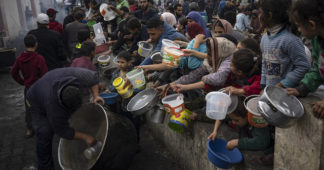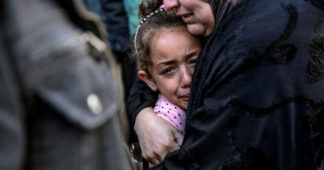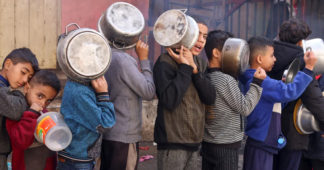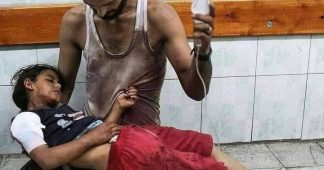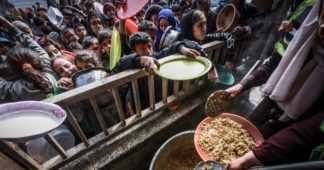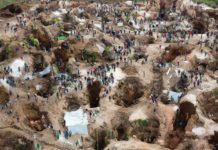By Perkin Amalaraj
The toddler’s frail, malnourished body scarcely twitched as she lay helplessly in an incubator chamber in the already-decimated Gaza hospital.
Leila Jeneid, one of countless children who have passed through the doors of Kamal Adwan Hospital, in the north of the Gaza Strip, has suffered as a result of starvation and dehydration.
In a video clip, Leila can be seen quickly breathing in and out, desperate for a breath of fresh air in one of the 12 remaining hospitals in the besieged enclave.
The outline of her ribs, along with all her other bones, are visible through her pallid, paper-thin skin, which sits in stark contrast to the blue blanket underneath her that provides little comfort to the toddler, who is not old enough to comprehend the hellish suffering she is undergoing.
Her jaw is slack as she lies on her back inside the plastic cage of the incubator, barely able to move her arms and legs.
She can’t keep her eyes open as medics at the hospital, which UN official Andrea De Domenico this week said was receiving ‘about 15 malnourished children a day and is struggling to maintain services,’ run tests to understand how to help her.
But it’s food, water and proper rest she needs, all things that the whole enclave is desperately in need of, and all things that Israel has been accused of deliberately withholding from civilians in its bitter war against Hamas, which – according to a top UN human rights official – could amount to a war crime if proven.
Continue reading at www.dailymail.co.uk
We remind our readers that publication of articles on our site does not mean that we agree with what is written. Our policy is to publish anything which we consider of interest, so as to assist our readers in forming their opinions. Sometimes we even publish articles with which we totally disagree, since we believe it is important for our readers to be informed on as wide a spectrum of views as possible.
